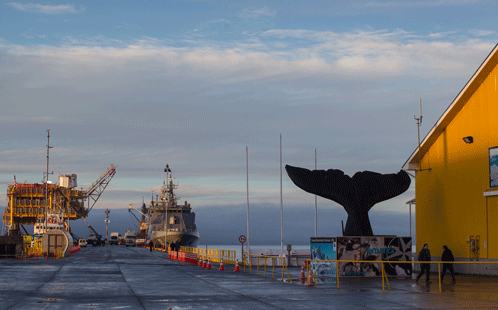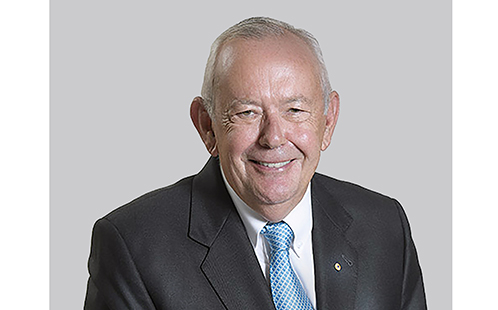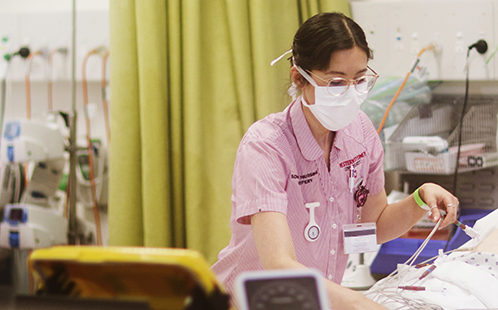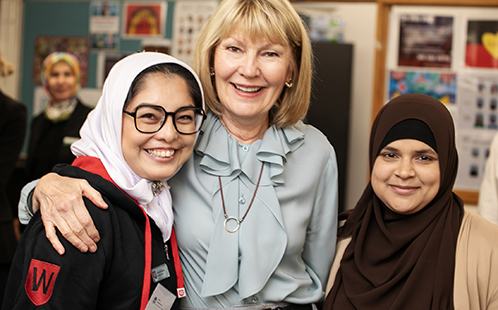WSU and Chile strengthen research partnership

Caption: Punta Arenas, where WSU researchers are working to enhance the city's custodian sense of its relation to Antarctica.
Western Sydney University’s Institute for Culture and Society (ICS) has signed Memorandum of Understandings (MOUs) with four leading Chilean Institutions in a move to formalise and strengthen existing research partnerships, and drive new and innovative collaborations.
Chile is one of 10 international strategic research sites for ICS, and the MOUs come ahead of the 2017 Knowledge/Culture/Ecologies conference (KCE 2017) in Santiago de Chile – presented by ICS and the four Chilean Institutions. They also come off the back of a number of existing collaborative research projects including an ARC Discovery Project and the international ARC Linkage Project Antarctic Cities and the Global Commons with the Chilean Antarctic Institute and the University of Magallanes.
According to ICS Director Professor Paul James, the Institute has been focused on developing strong institutional partnerships in Santiago and Punta Arenas intensively for the past two years – building upon previous collaborations in Chile.
“In Santiago, we are partnering with Universidad Diego Portales and Universidad Católica to host a major conference on ecologies. In Punta Arenas we are working to enhance the city's custodian sense of its relation to Antarctica, a global commons that is central to the future of the planet,” says Professor James.
“These are partnerships that will hopefully make a positive difference to sustainable urban living.”
KCE 2017 – the fourth conference in the Knowledge/Culture series created by the ICS and first to be held outside of Australia – will bring together hundreds of academics, practitioners and activists from 32 countries. They will debate the shifting roles of knowledges, cultures and environments in historical, contemporary and future scenarios of crisis and resilience; environmental justice and inequality; governance; socio-environmental change; and reckonings with nature.
According to convenor of the conference, Associate Professor Juan Francisco Salazar from the School of Humanities and Communication Arts and Research Director of the ICS, the event is set to generate a lot of international interest due to the calibre of the international keynote speakers and urgency of the themes being debated.
“The idea of the ecological has undergone massive renovation across numerous disciplines, so a key aim of this conference is to explore current transformations in socio-ecologies and to generate knowledge practices capable of understanding their formation and complex reverberations,” he says.
The four institutions who have signed MOUs with the University are:
Universidad Diego Portales, Chile (UDP)
Universidad Diego Portales( UDP) is one of the first private universities founded in 1982 in Chile. UDP has an extensive network of working alliances and agreements with renowned universities, research centres, foundations and overseas organizations in more than 25 countries.
Pontificia Universidad Católica de Chile (PUC)
Pontificia Universidad Católica de Chile was established in 1888, making it one of Chile's oldest universities and one of the most recognised educational institutions in Latin America.
It ranks 1st in Chile; 147 in the world and 3rd in Latin America in QS rankings (2016/2017) and 3Rd in Latin America in the Times Higher Education rankings (2016).
Nucleo Milenio en Energia y Sociedad (NUMIES)
The Millennium Center for Energy and Society Research (NUMIES) established in 2014, a part of the Millennium Science Initiative, a Chilean government program that aims to promote the development of scientific and technological research of excellence in Chile, a key factor for sustainable economic and social development. NUMIES is a cooperative research centre of high-level research in the area of energy and society.
Centre for Social Conflict and Cohesion Studies (COES):
The Centre for Social Conflict and Cohesion Studies (COES) was launched in 2014 by the President of Chile and is a cooperative research centre funded by the Chilean government through its program “Fondo de Financiamiento de Centros de Investigación en Áreas Prioritarias (Fondap- CONICYT)”.
COES brings together more than 30 academics from four different universities in Chile (Universidad de Chile, Pontificia Universidad Católica de Chile, Universidad Adolfo Ibáñez and Universidad Diego Portales) and from multiple academic disciplines.
Latest News

Western Sydney University receives transformational donation to support LGBTIQA+ community
Western Sydney University has welcomed a philanthropic donation from The Brennan Lynch Foundation.

Western Sydney University ranks among world’s best for 23 subjects
The University has been named as one of the world’s top universities for the study of 23 subjects in the latest edition of the QS World University Rankings by Subject, including being ranked in the top 50 for Nursing.

Western Sydney University receives landmark $7.9 million philanthropic gift from Harvey Norman to launch leadership academy, empowering young women in Western Sydney
Western has welcomed a landmark donation to establish the Harvey Norman® Young Women’s Leadership Academy Led by Katie Page.
Mobile options:

